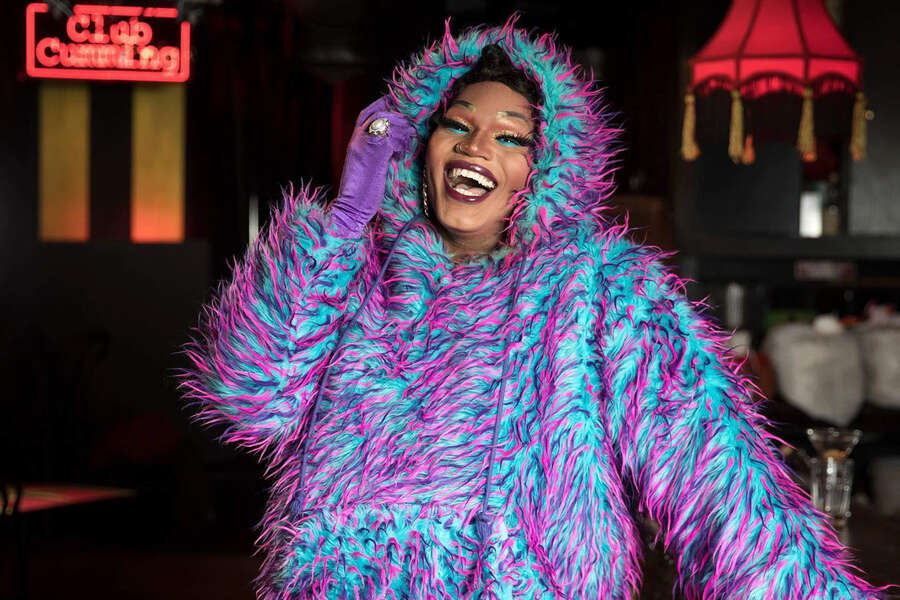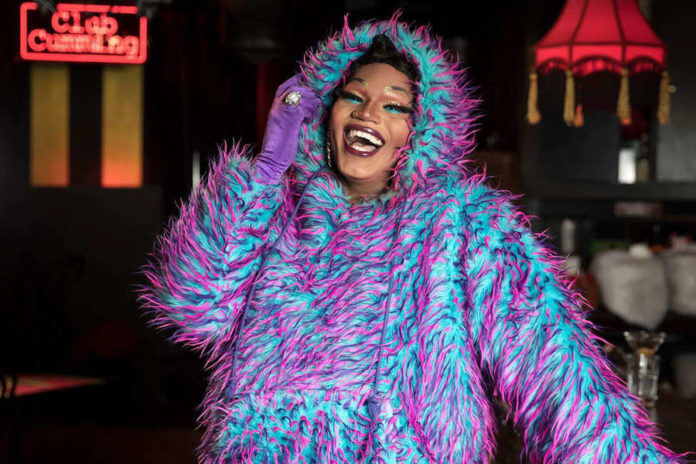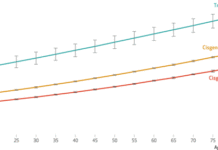
Miz Jade is an educator, dancer, and activist who has seen it all in her career. From boating with Kesha, to promoting inclusivity through children’s books, Miz Jade has been busy turning parties and changing minds since she was a teenager. She’s also performing at Restaurant Workers’ Community Foundation’s annual fundraiser this month. We sat down with her to ask her how life has changed since the pandemic and how we can all come into our power and show up for our communities.
John deBary: Comparing life now to how things were pre-pandemic, what’s changed for you?
Miz Jade: Turning the place where I sleep into an actual home. Before I was never really home, I was always on the go and my room was literally for me to sleep. During lockdown, I had to sit with myself and go, “Oh, I hate this place! Get me out of here!” [Laughs] I started changing things up, organizing, and doing some decorating just to feel at home and at peace with everything. I was doing some virtual stuff, like Drag Queen Story Hour, doing shows through Zoom or Twitch. I’m fortunate enough to have a therapist before the pandemic, so having that during lockdown was important for me and thinking about what I need to feel supported, to feel a part of something, what I needed to do for my community.
I’ve been advocating a lot more for myself. In the drag world, we’re used to thinking that we should be grateful for the little things we get and I’m like, “Uh uh, rewind, take it back.” Now that we’re back to—I don’t want to say normal—but back to the swing of things, people are back to the way things were in terms of communication. For me I know my worth and I know that a lot of people want to work with me because I’m professional. I’m going to show up for the whole gig and do numbers that make the crowd interested or excited and I’m not going to be messy and demanding shots for all my 50 friends. I’m pretty chill. The only “diva” thing is that I need communication. That’s not really a diva thing, but people get scared because we don’t communicate. It’s a lot of me being a little bit more direct and spicy and to the point and get my—not necessarily get my way—but set a boundary and expectations for everyone who I work with. I don’t want to work with people who I don’t like or who make me feel unsafe.
JdB: Yeah, this reminds me a lot of the way people in the restaurant industry are thinking, “Hey, I’m not disposable!” And the mental health conversation is huge.
MJ: Exactly.
JdB: Which came first, dancing or drag?
MJ: I would say dancing came first. I got my first real choreography gig when I was 15, but I had my first drag show when I was 16, so it’s not that far behind. Dance took precedent but I started using what I learned in dance to make more opportunities for myself in drag. Now I’m a dance teacher when I’m not at the clurb. I teach at a recital studio in Westchester and a class in Greenpoint.
JdB: How long have you been vegan?
MJ: Six years. I was a vegetarian in college for maybe five years and then I had a death in the family that shook me up and everything about my life changed. I went from being very organized and anal about everything to a hot cha-cha mess. I eventually moved to Brooklyn teaching dance and dog walking and doing drag and it just got to this point where I was—and I started dating an Israeli; this is actually very important. He would make espresso and so I would drink coffee constantly and do my drag gigs and be drinking vodka Red Bulls and after I would eat country fried chicken steak with jalapeño cheese, so my stomach was always going through it. I started working out a bit and then I started a detox and, by week two of the detox, you’re eating vegan. I’m in a dance class and, all of the sudden, I feel very focused. I feel like I’m honing in and actually listening to the teacher—a fog lifted from my brain. For what I was expecting of and commanding of my body, I couldn’t treat my body like crap while expecting my body to do the most.
JdB: I can put the pieces together from the name, but can you tell me more about Drag Queen Story Hour?
MJ: [Laughs] It’s exactly what it sounds like! We are fabulous role models and depictions of queer identities, and we go into schools and libraries, churches, parks, and shelters. We read books about inclusivity, things that everyday children’s books are about but with a focus on people who aren’t usually featured in the “western canon” of books. We have books that we all know like The Very Hungry Caterpillar, but we also have books about Black trans youth who are struggling with their physical appearance. We act as fierce fantasy role models promoting education and literacy. It’s cute. It’s simple, but we’ve gotten a lot of pushback, of course—assumptions that LGBTQ+ people are deviants. But all we’re doing is being like, “Hi!”
JdB: We exist.
MJ: We exist, and here’s a cute book. There is something about someone coming in with a beat face and big hair and a flashy outfit that really pulls the focus for a lot of children, and not many of us had representation of queer people in our lives growing up. A lot of parents—especially straight parents, or guardians, are bringing their youths to these readings to show the example of the “other;” people who are living their lives authentically.








